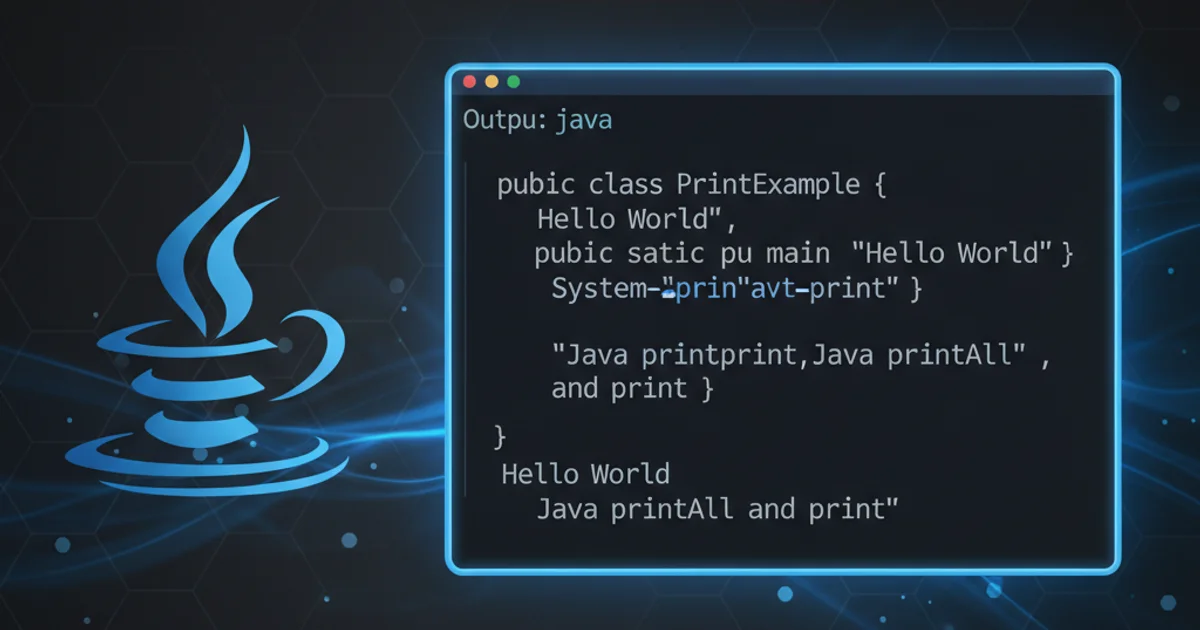What does %[^\n] mean in C?
Categories:
Understanding `%[^
]in C'sscanf` Format Specifiers

Explore the powerful and often misunderstood %[^ ] format specifier in C's scanf function, learning how it reads entire lines of input until a newline character is encountered.
In C programming, handling user input is a fundamental task. While scanf is a common function for this purpose, its format specifiers can sometimes be tricky. One particularly powerful, yet often confusing, specifier is %[^ ]. This article will demystify %[^ ], explaining its mechanics, common use cases, and potential pitfalls, ensuring you can confidently read entire lines of text in your C applications.
The Basics of scanf and Format Specifiers
scanf is a standard library function in C used for formatted input. It reads data from stdin (standard input, usually the keyboard) according to a specified format string and stores the results into the variables provided. Common format specifiers include %d for integers, %f for floating-point numbers, and %s for strings. However, %s has a significant limitation: it stops reading at the first whitespace character (space, tab, or newline), making it unsuitable for reading strings containing spaces.
Deconstructing `%[^
]`
The %[ format specifier is a special type of conversion specifier known as a 'scanset'. It allows you to define a set of characters that scanf should either match or exclude. Let's break down %[^ ]:
%[: This initiates a scanset.scanfwill read characters as long as they match the characters specified within the brackets.^: When placed immediately after the opening bracket[, the caret^negates the scanset. This meansscanfwill read characters as long as they are NOT in the specified set.: This is the newline character. So,^means 'not a newline character'.
Putting it all together, %[^ ] instructs scanf to read and store characters into a string until it encounters a newline character (\n). The newline character itself is not consumed by %[^ ]; it remains in the input buffer. This is a crucial detail that often leads to unexpected behavior in subsequent input operations.
flowchart TD
A[Start `scanf("%[^
]", buffer)`]
B{Read character from input buffer}
C{Is character a newline (\n)?}
D[Store character in `buffer`]
E[Stop reading]
F[Newline character remains in buffer]
A --> B
B --> C
C -- No --> D
D --> B
C -- Yes --> E
E --> FFlowchart illustrating how %[^ ] processes input
#include <stdio.h>
int main() {
char line[100];
printf("Enter a line of text: ");
scanf("%[^
]", line); // Reads until newline
printf("You entered: %s\n", line);
return 0;
}
Basic example of using %[^ ] to read a full line.
Handling the Leftover Newline
As mentioned, %[^ ] does not consume the newline character. If you have subsequent scanf calls (especially those using %c, %s, or another %[^ ]), they might immediately read this leftover newline, leading to unexpected empty inputs or skipped prompts. To prevent this, you typically need to consume the newline character after using %[^ ].
#include <stdio.h>
int main() {
char line1[100];
char line2[100];
printf("Enter first line: ");
scanf("%[^
]", line1); // Reads line1, leaves \n
getchar(); // Consumes the leftover newline character
printf("Enter second line: ");
scanf("%[^
]", line2); // Reads line2
getchar(); // Consumes the leftover newline character
printf("Line 1: %s\n", line1);
printf("Line 2: %s\n", line2);
return 0;
}
Using getchar() to consume the trailing newline after %[^ ].
getchar() for consuming the newline is scanf("%*c"). The * suppresses assignment, so it reads and discards one character. For robustness, scanf("%*c") is often preferred over getchar() as it can handle multiple whitespace characters, though getchar() is simpler for just a single newline.Security Considerations and Buffer Overflows
Like %s, %[^ ] does not inherently check for buffer boundaries. If the user inputs more characters than your buffer can hold, it will lead to a buffer overflow, which is a serious security vulnerability. Always specify a maximum field width to prevent this.
#include <stdio.h>
int main() {
char line[10]; // Buffer size 10, so max 9 chars + null terminator
printf("Enter a line (max 9 chars): ");
scanf("%9[^
]", line); // Reads up to 9 characters or until newline
getchar(); // Consume leftover newline
printf("You entered: %s\n", line);
return 0;
}
Preventing buffer overflow with a field width specifier.
%[^ ] with a field width is safer, for more robust and flexible line input, especially when dealing with arbitrary line lengths, fgets() is generally recommended over scanf. fgets() allows you to specify the buffer size and includes the newline character in the buffer, which you might then need to remove.